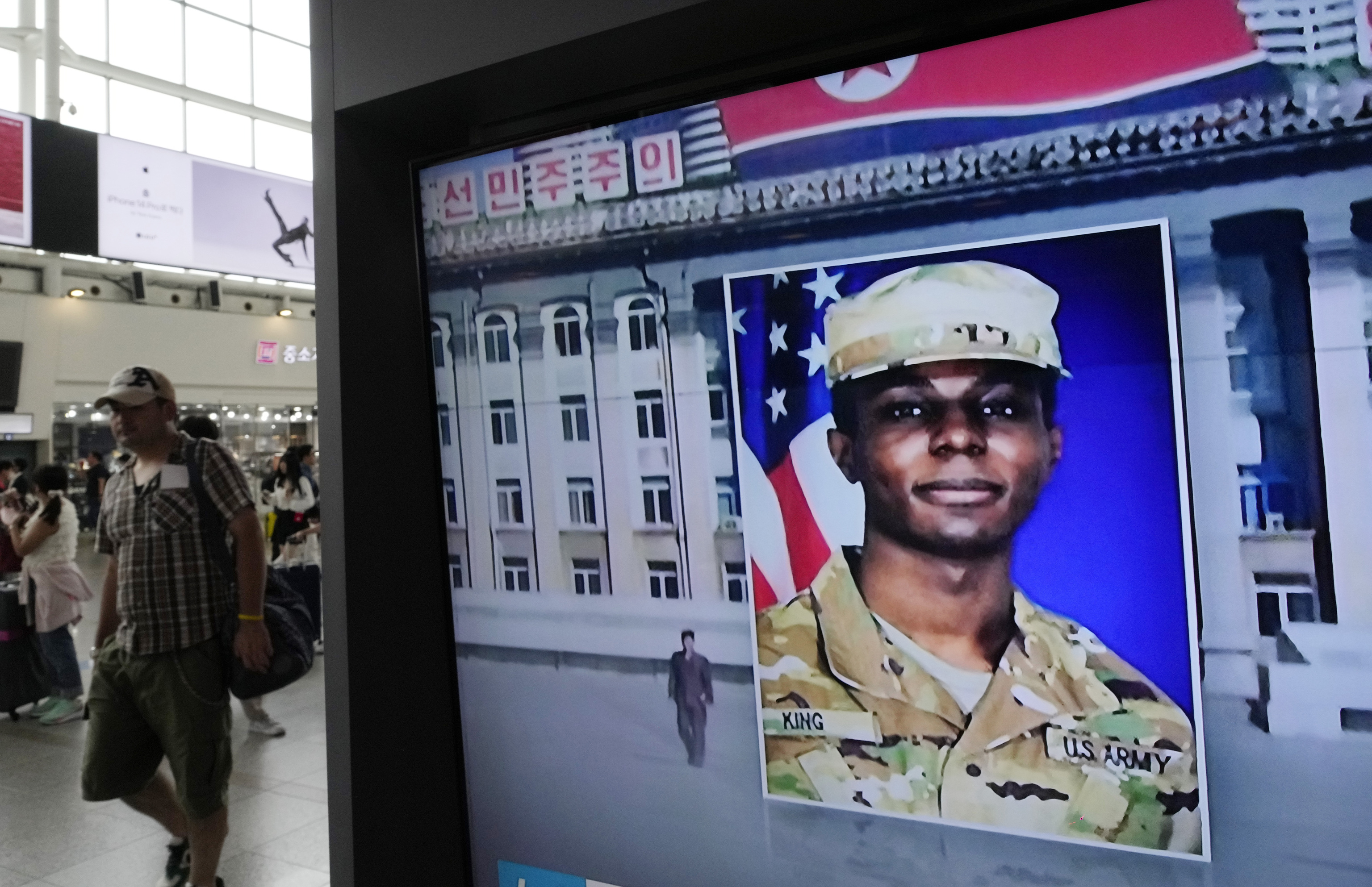An Army private who fled to North Korea just over a year ago will plead guilty to desertion and four other charges and take responsibility for his conduct, his lawyer said Monday.
Travis King's attorney, Franklin D. Rosenblatt, told The Associated Press that King intends to admit guilt to a total of five military offenses, including desertion and assaulting an officer. Nine other offenses, including possession of sexual images of a child, will be withdrawn and dismissed under the terms of the deal.
King will be given an opportunity at a Sept. 20 hearing at Fort Bliss, Texas, to discuss his actions and explain what he did.
"He wants to take responsibility for the things that he did," Rosenblatt said.
In a separate statement, he added, "Travis is grateful to his friends and family who have supported him, and to all outside his circle who did not pre-judge his case based on the initial allegations."
He declined to comment on a possible sentence that his client might face. Desertion is a serious charge and can result in imprisonment.
The AP reported last month that the two sides were in plea talks.
King bolted across the heavily fortified border from South Korea in July 2023, and became the first American detained in North Korea in nearly five years.
His run into North Korea came soon after he was released from a South Korean prison where he had served nearly two months on assault charges.
About a week after his release from the prison, military officers took him to the airport so he could return to Fort Bliss to face disciplinary action. He was escorted as far as customs, but instead of getting on the plane, he joined a civilian tour of the Korean border village of Panmunjom. He then ran across the border, which is lined with guards and often crowded with tourists.
He was detained by North Korea, but after about two months, Pyongyang abruptly announced that it would expel him. On Sept. 28, he was flown to back to Texas, and has been in custody there.
The U.S. military in October filed a series of charges against King under the Uniform Code of Military Justice, including desertion, as well as kicking and punching other officers, unlawfully possessing alcohol, making a false statement and possessing a video of a child engaged in sexual activity. Those allegations date back to July 10, the same day he was released from the prison.
